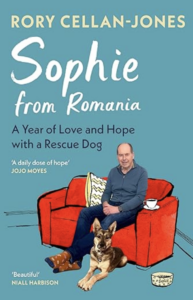A Modernist duck-pond

In the gardens of the Barbican Centre.
Quote of the Day
”God give me the serenity to accept things which cannot be changed; Give me courage to change things which must be changed; And the wisdom to distinguish one from the other.”
- Theologian Reinhold Niebuhr (1892–1971)
Musical alternative to the morning’s radio news
Wagner | Siegfried Idyll | Frankfurt Radio Symphony orchestra
Entrancing. According to Wikipedia, Wagner composed it as a birthday present to his second wife, Cosima, after the birth of their son Siegfried in 1869. It was first performed on Christmas morning, 25 December 1870, by a small ensemble of the Tonhalle-Orchester Zürich on the stairs of their villa at Tribschen (today part of Lucerne), Switzerland. Cosima awoke to its opening melody. Not a bad way to start your day.
Long Read of the Day
AI Fight Club and what it hides
One of the most annoying things about the present moment is how it seems almost impossible to have a sane discussion about Large Language Models (LLMs) — or indeed about Generative AI generally. If you say that this is a powerful and interesting technology that needs to be taken seriously, then your ear is chewed off with a litany of downsides, dangers, complaints about corporate over-reach, environmental degradation and so on. On the other hand, if you observe that the technology has worrying flaws and that the corporations that own and control it are risks to democracy — and to the climate — then you get sneered at by VCs and boosters as an enemy of our old friend, ‘progress’.
Henry Farrell (Whom God Preserve) has written an interesting blog post in which he navigates these choppy waters with his customary adroitness.
My current cause for vexation is the controversy over AllDayTA.com, a new Large Language Model (LLM) based service for professors. Many academics are unhappy that this technology exists, and have expressed their feelings about the service’s creators (who are themselves academics) in plain and forceful language. The service’s creators have expressed their own unhappiness in turn.
Like so many other disputes, this one was swiftly pulled into the all-devouring maelstrom of what I call “AI Fight Club,” a ritualized combat, waged bout after bout between two highly stylized positions…
Do read the whole piece.
Books, etc.

Rory Cellan Jones is a journalist I’ve liked and admired for years, and when his wife Diane Coyle told me he’d written a book about a dog I was intrigued. So I bought it and am delighted I did. It’s the story of how he and Diane got a rescue dog from Romania which turned out to be chronically terrified of everything, and of how they were gradually able to cure the animal’s terror while their progress was being followed by hundreds of thousands of followers on social media. It’s beautifully written, and interweaves the story of Rory’s struggle with Parkinson’s with the tale of Sophie’s emergence into the light. If you’re looking a good news story in the midst of the current gloom, then this might be it.

In February last Rory was in Cambridge at his alma mater (Jesus College), and when we were going in to the event I suddenly noticed him making a last-minute phone call before going in to the auditorium for a public conversation with a couple of students before an invited audience.
My commonplace booklet
From The Economist:
To track academic writing over time, The Economist analysed 347,000 PhD abstracts published between 1812 and 2023. The dataset was produced by the British Library and represents a majority of English-language doctoral theses awarded by British universities. We reviewed each abstract using the Flesch reading-ease test, which measures sentence and word length to gauge readability. A score of 100 roughly indicates passages can be understood by someone who has completed fourth grade in America (usually aged 9 or 10), while a score lower than 30 is considered very difficult to read. An average New York Times article scores around 50 and a CNN article around 70. This article scores 41.
From “asymmetric allylation of aldehydes” to “pneumatological and apocalyptically eschatological foundations”, PhD abstracts had an unmistakably scholarly aroma. We found that, in every discipline, the abstracts have become harder to read over the past 80 years. The shift is most stark in the humanities and social sciences (see chart), with average Flesch scores falling from around 37 in the 1940s to 18 in the 2020s. From the 1990s onwards, those fields went from being substantially more readable than the natural sciences—as you might expect—to as complicated.
I’m not surprised, but abstracts are generally denser than the texts they describe, so the situation might not be as bad as the piece suggests.
This Blog is also available as an email three days a week. If you think that might suit you better, why not subscribe? One email on Mondays, Wednesdays and Fridays delivered to your inbox at 6am UK time. It’s free, and you can always unsubscribe if you conclude your inbox is full enough already!
